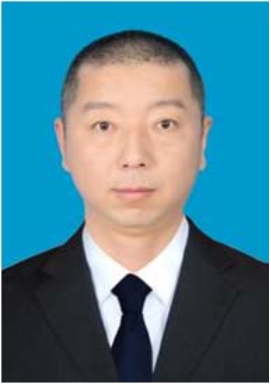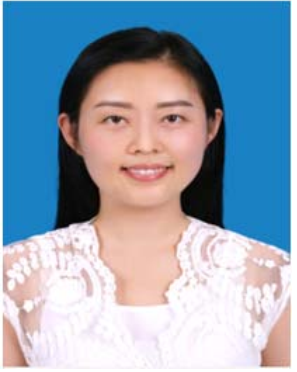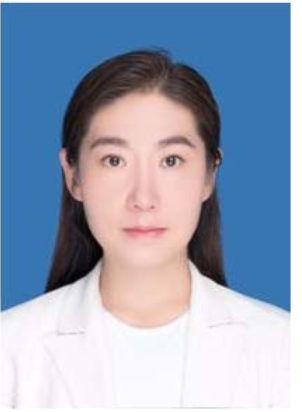
Preface
In recent years, with the decline of TV power on rate and audience rating, the TV advertising market has entered a bottleneck period, especially when the advertising revenue of terrestrial TV channels has plunged into a precipice. The development of traditional radio and television industry is becoming more and more difficult step by step. The influence of public opinion of new media based on the Internet is increasing day by day. The growth rate of advertising is far more than that of traditional media. Its economic strength and expansion force surpass the faltering traditional media with great advantages. All of these bring great challenges to radio and television media. Of course, the rapid development of all kinds of new media brings challenges and impacts to the traditional radio and television, but also gives the traditional radio and television the enlightenment of transformation. The transformation of traditional radio and television media and the rise of new media have spawned and promoted media convergence. Traditional radio and television media are making "genetically modified" changes with the help of the Internet, and the development of the integration of traditional radio and television and new media is also advancing with unprecedented strength. With the rapid development of media technology and the emergence of all kinds of new media, human beings have entered the Internet era, and the integration of all kinds of media is gradually deepening. Where is the radio and television media as a traditional media? How can radio and television media build their own core competitiveness in the trend of media convergence? What is the future of radio and television media? These problems have become a hot topic in the radio and television industry and theoretical circles.
Based on the analysis of a large number of literature on “media convergence” since the new century, and combined with the actual development of China’s radio and television media, this book discusses the reform and development of China’s Radio and television media under the environment of media convergence. This book is roughly divided into the impact and countermeasures of media convergence on radio and television content production, the impact and countermeasures of media convergence on radio and television channel positioning and arrangement, media convergence and radio and television copyright management and operation, the impact and countermeasures of media convergence on radio and television industry, the impact and countermeasures of media convergence on radio and television production and broadcasting process and internal management, the research on talent training and corporate culture construction of radio and television media under the background of media convergence, etc.
前 言
近年来,电视开机率下降、收视率下滑,电视广告市场进入瓶颈期,特别是地面电视频道大面积出现广告收入断崖式跳水,传统广电行业的发展一步步趋向困难。而以互联网为基础的新媒体舆论影响力日渐增强, 广告增幅远远超过传统媒体,其经济实力和扩张力以很大的优势超越着步履蹒跚的传统媒体。 这些都给广电传媒带来很大的挑战。当然,各类新媒体迅猛发展给传统广电带来挑战和冲击的同时,也给传统广电以转型的启示。传统广电媒体的转型和新媒体的兴起,催生并促进了媒介融合,传统广电媒体借力互联网正做出“转基因”式的变革,传统广电与新媒体的融合发展也以前所未有的力度在推进。随着传媒技术的迅猛发展和各类新媒体的层出不穷,人类进入互联网时代,各类媒介之间的融合逐渐深入,作为传统媒体存在的广电传媒何去何从?广电传媒如何在媒介融合的大势中打造自身的核心竞争力?广电传媒将拥有怎样的未来?这些问题成为广电业界和理论界关注的热门话题。
本书在分析梳理新世纪以来关于“媒介融合”的大量文献资料基础上,结合我国广电传媒发展实际, 对媒介融合环境下我国广电传媒的改革与发展问题展开探讨。本书大致分成媒介融合对广电内容生产的影响及对策、媒介融合对广电频道定位及编排的影响及对策、媒介融合与广电版权管理及运营、媒介融合对广电产业的影响及对策、媒介融合对广电制播流程与内部管理的影响及对策、媒介融合背景下广电传媒人才培养和企业文化建设研究等几个方面来进行。

Ji Guan, male, the Han nationality, bachelor’s degree, born in Kashgar City, Xinjiang Province in March 1979. He graduated from Kashgar University.He is now working in 2022 Station of National Radio and Television Administration and serves as the general engineer and senior engineer. His research direction is radio and television equipment maintenance and safety broadcast management. The two science and technology innovation projects he participated in won the second prize and the third prize respectively in the National Radio, Film and Television Technology Society, and presided over and completed the “Silk Road film and television bridge project” - Kashgar earth station construction project and subsequent expansion project.
关吉,男,汉族,出生于 1979 年 3 月,新疆喀什市人,大学本科学历,毕业于新疆喀什大学。现工作于国家广播电视总局二 0 二二台,担任总工程师,高级工程师,研究方向为广播电视设备维护及安全播出管理,参与完成的两个科技创新项目在全国广播电影电视技术学会分别获二等奖和三等奖, 主持完成“丝绸之路影视桥工程”-喀什地球站建设项目及后续扩建项目。

Lan Luo, female, the Han nationality, bachelor’s degree, born in Neijiang City, Sichuan Province in April 1981. She graduated from Sichuan University majored in Chinese language and literature. She studies on news media and she is a TV editor. She has won the first, second and third prizes for her special topic and interview programs. Longchang mutton soup, which she planned and edited, was broadcast in the column of “well off China: breakfast in a thousand cities” of Xinhua news agency, with a broadcast volume of more than 4.5 million and won the first place in the national weekly list. Her TV news topic “pure land village: digging for gold in the earth, poverty alleviation through tourism” was broadcast on CCTV’s “economic half an hour”.
罗岚,女,汉族, 1981 年 4 月生,四川内江人,本科学历,毕业于四川大学汉语言文学专业,研究方向:新闻媒体,职务:电视编辑。本人创作的专题、访谈类节目曾获得省市一二三等奖。 策划编辑的《隆昌羊肉汤》 在新华社《小康中国•千城早餐》栏目播放,播放量超 450 万,取得了全国周榜第一。编辑的电视新闻专题《净土村:土里掘金、旅游扶贫》在中央电视台《经济半小时》播出。

Wei Yang, female, Hmong, engineer, bachelor’s degree, born in Harbin City, Heilongjiang Province in August 1982. She graduated from Jilin University of Arts majored in art design. She mainly studies on traditional media and media convergence development. At present , she works in Harbin Radio and Television Station and is mainly engaged in post production. She has rich experience in program production, has participated in a number of large-scale programs and parties, and won the Harbin News Award.
杨威,女,苗族, 1982 年 8 月出生,黑龙江哈尔滨人,工程师;本科毕业于吉林艺术学院艺术设计专业,本科学历;主要研究方向是传统媒体与融媒体发展;现任职于哈尔滨广播电视台,主要从事后期编辑工作,有丰富的节目制作经验,先后参与多个大型节目和晚会,并获得哈尔滨新闻奖。